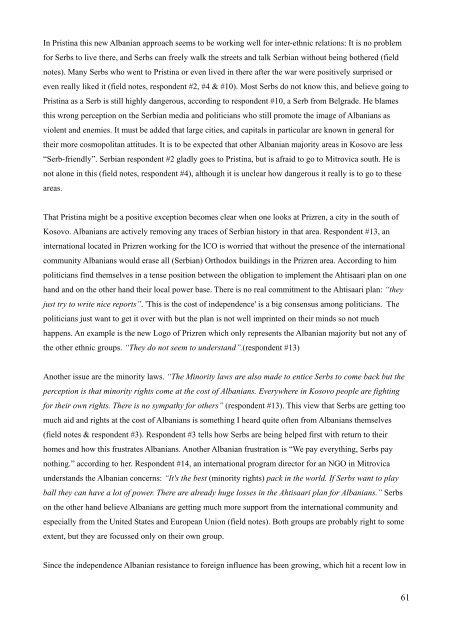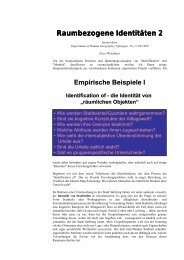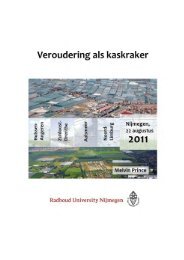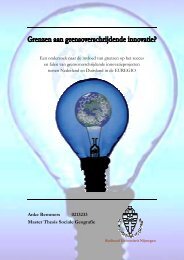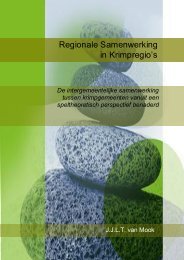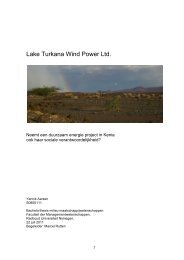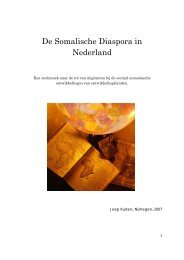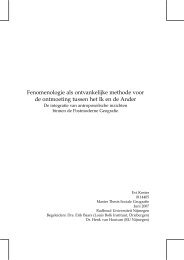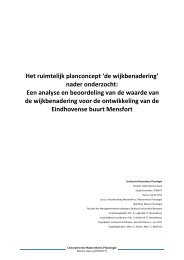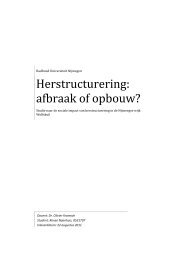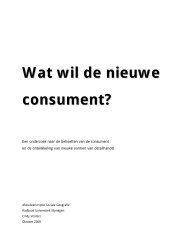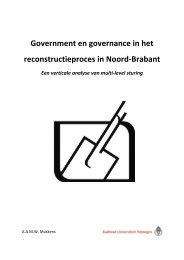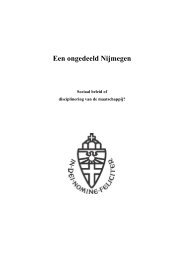Trading with the enemy in Mitrovica, Kosovo. - RUhosting
Trading with the enemy in Mitrovica, Kosovo. - RUhosting
Trading with the enemy in Mitrovica, Kosovo. - RUhosting
Create successful ePaper yourself
Turn your PDF publications into a flip-book with our unique Google optimized e-Paper software.
In Prist<strong>in</strong>a this new Albanian approach seems to be work<strong>in</strong>g well for <strong>in</strong>ter-ethnic relations: It is no problem<br />
for Serbs to live <strong>the</strong>re, and Serbs can freely walk <strong>the</strong> streets and talk Serbian <strong>with</strong>out be<strong>in</strong>g bo<strong>the</strong>red (field<br />
notes). Many Serbs who went to Prist<strong>in</strong>a or even lived <strong>in</strong> <strong>the</strong>re after <strong>the</strong> war were positively surprised or<br />
even really liked it (field notes, respondent #2, #4 & #10). Most Serbs do not know this, and believe go<strong>in</strong>g to<br />
Prist<strong>in</strong>a as a Serb is still highly dangerous, accord<strong>in</strong>g to respondent #10, a Serb from Belgrade. He blames<br />
this wrong perception on <strong>the</strong> Serbian media and politicians who still promote <strong>the</strong> image of Albanians as<br />
violent and enemies. It must be added that large cities, and capitals <strong>in</strong> particular are known <strong>in</strong> general for<br />
<strong>the</strong>ir more cosmopolitan attitudes. It is to be expected that o<strong>the</strong>r Albanian majority areas <strong>in</strong> <strong>Kosovo</strong> are less<br />
“Serb-friendly”. Serbian respondent #2 gladly goes to Prist<strong>in</strong>a, but is afraid to go to <strong>Mitrovica</strong> south. He is<br />
not alone <strong>in</strong> this (field notes, respondent #4), although it is unclear how dangerous it really is to go to <strong>the</strong>se<br />
areas.<br />
That Prist<strong>in</strong>a might be a positive exception becomes clear when one looks at Prizren, a city <strong>in</strong> <strong>the</strong> south of<br />
<strong>Kosovo</strong>. Albanians are actively remov<strong>in</strong>g any traces of Serbian history <strong>in</strong> that area. Respondent #13, an<br />
<strong>in</strong>ternational located <strong>in</strong> Prizren work<strong>in</strong>g for <strong>the</strong> ICO is worried that <strong>with</strong>out <strong>the</strong> presence of <strong>the</strong> <strong>in</strong>ternational<br />
community Albanians would erase all (Serbian) Orthodox build<strong>in</strong>gs <strong>in</strong> <strong>the</strong> Prizren area. Accord<strong>in</strong>g to him<br />
politicians f<strong>in</strong>d <strong>the</strong>mselves <strong>in</strong> a tense position between <strong>the</strong> obligation to implement <strong>the</strong> Ahtisaari plan on one<br />
hand and on <strong>the</strong> o<strong>the</strong>r hand <strong>the</strong>ir local power base. There is no real commitment to <strong>the</strong> Ahtisaari plan: “<strong>the</strong>y<br />
just try to write nice reports”. 'This is <strong>the</strong> cost of <strong>in</strong>dependence' is a big consensus among politicians. The<br />
politicians just want to get it over <strong>with</strong> but <strong>the</strong> plan is not well impr<strong>in</strong>ted on <strong>the</strong>ir m<strong>in</strong>ds so not much<br />
happens. An example is <strong>the</strong> new Logo of Prizren which only represents <strong>the</strong> Albanian majority but not any of<br />
<strong>the</strong> o<strong>the</strong>r ethnic groups. “They do not seem to understand”.(respondent #13)<br />
Ano<strong>the</strong>r issue are <strong>the</strong> m<strong>in</strong>ority laws. “The M<strong>in</strong>ority laws are also made to entice Serbs to come back but <strong>the</strong><br />
perception is that m<strong>in</strong>ority rights come at <strong>the</strong> cost of Albanians. Everywhere <strong>in</strong> <strong>Kosovo</strong> people are fight<strong>in</strong>g<br />
for <strong>the</strong>ir own rights. There is no sympathy for o<strong>the</strong>rs” (respondent #13). This view that Serbs are gett<strong>in</strong>g too<br />
much aid and rights at <strong>the</strong> cost of Albanians is someth<strong>in</strong>g I heard quite often from Albanians <strong>the</strong>mselves<br />
(field notes & respondent #3). Respondent #3 tells how Serbs are be<strong>in</strong>g helped first <strong>with</strong> return to <strong>the</strong>ir<br />
homes and how this frustrates Albanians. Ano<strong>the</strong>r Albanian frustration is “We pay everyth<strong>in</strong>g, Serbs pay<br />
noth<strong>in</strong>g.” accord<strong>in</strong>g to her. Respondent #14, an <strong>in</strong>ternational program director for an NGO <strong>in</strong> <strong>Mitrovica</strong><br />
understands <strong>the</strong> Albanian concerns: “It's <strong>the</strong> best (m<strong>in</strong>ority rights) pack <strong>in</strong> <strong>the</strong> world. If Serbs want to play<br />
ball <strong>the</strong>y can have a lot of power. There are already huge losses <strong>in</strong> <strong>the</strong> Ahtisaari plan for Albanians.” Serbs<br />
on <strong>the</strong> o<strong>the</strong>r hand believe Albanians are gett<strong>in</strong>g much more support from <strong>the</strong> <strong>in</strong>ternational community and<br />
especially from <strong>the</strong> United States and European Union (field notes). Both groups are probably right to some<br />
extent, but <strong>the</strong>y are focussed only on <strong>the</strong>ir own group.<br />
S<strong>in</strong>ce <strong>the</strong> <strong>in</strong>dependence Albanian resistance to foreign <strong>in</strong>fluence has been grow<strong>in</strong>g, which hit a recent low <strong>in</strong><br />
61


